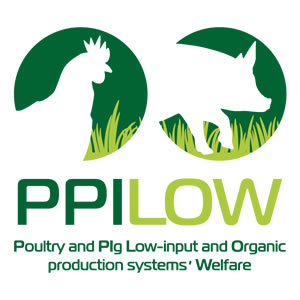The H2020 PPILOW project (2019-2024) has started!
The Kick-off meeting of the H2020 PPILOW project: ‘Poultry and PIg Low-input and Organic production systems’ Welfare’ was held at the INRA Headquarters in Paris, 4th to 6th of September 2020. Supported by 6 members of its European Multiactor Board, DG AGRI of the European Commission, 81 representatives of the 23 partners from 9 countries (Belgium, Denmark, Finland, France, Germany, Italy, The Netherlands, Romania, United Kingdom), the PPILOW multi-actor project started by building up the interactions between multi-actor groups and project partners.
The objective of PPILOW is to co-create with end-users welfare self-assessment tools and innovative breeding and rearing strategies and techniques for improving animal and human welfare based on robust scientific sets of data.
The innovations co-created thanks to tight interactions with 9 National Practitioner groups will allow to 1) prevent piglet castration by identifying genotypes allowing the rearing of entire male pigs without undesired impacts on behaviour and meat quality; 2) find enrichment alternatives to limit feather pecking while not trimming the beak of laying hens; 3) study two strategies for avoiding the elimination of one day-old layer male chicks, on the one hand by rearing dual-purpose strains efficiently producing both eggs and meat, and by building-up a non-invasive in-ovo sexing method; 4) propose breeding and management strategies for favoring positive behaviours and improving health and robustness in both species.
The feasibility of the proposed approaches and their impacts according to the ‘One welfare’ concept will be evaluated through appropriate multicriteria analyses and business models and the change in field practices will be facilitated through the interactions with the National Practitioner Groups.
The PPILOW consortium has started the work programme by identifying barriers to welfare in organic and low-input outdoor pig and poultry rearing systems and levers of improvement, adopting shared tools for evaluating welfare and sustainability, and beginning to test experimentally and on-farm strategies and techniques for improving welfare in these systems in a participative approach.


